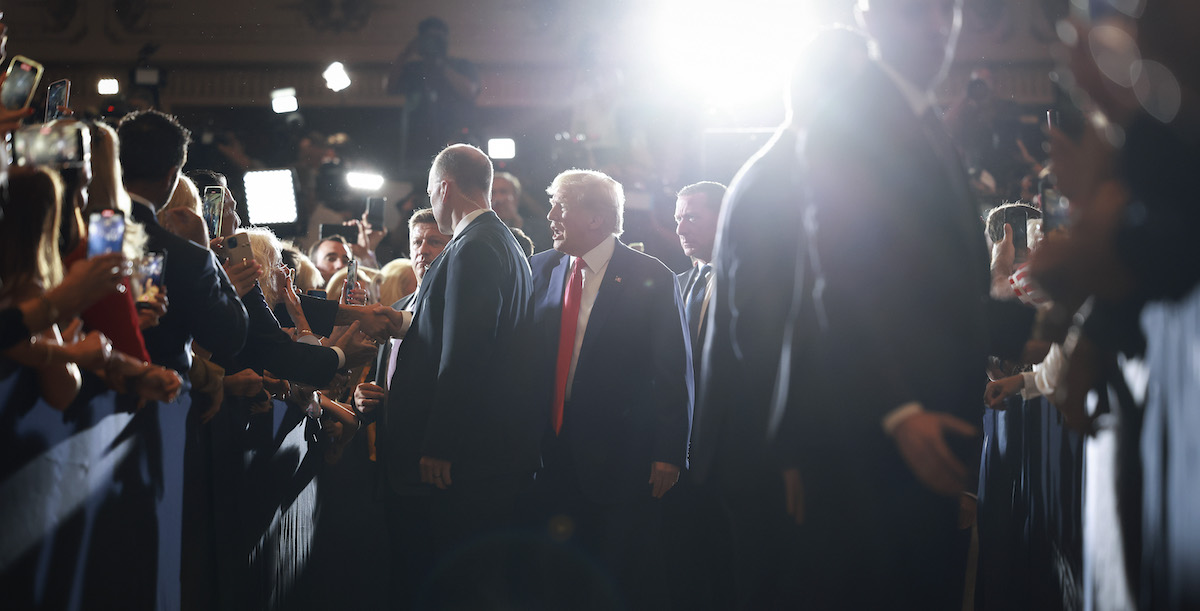In the United States, the investigations of special prosecutor John H. Durham, who in 2019 had been appointed by the administration of Donald Trump to verify whether there had been any improprieties and irregularities in the FBI investigations into the collusion between Trump himself and the Russia in the 2016 presidential election. The results of the Durham investigation, contained in a report of just over 300 pages, show that the FBI did indeed commit irregularities, but fail to demonstrate, as Trump and his aides had hoped and allies, that the investigation into the collusion with Russia had been the result of a conspiracy against the former president.
The Durham report is in fact an investigation into the progress of another investigation, and it becomes more understandable if we start from the first facts. During the 2016 US election campaign, which Trump later won against Hillary Clinton, Trump’s electoral committee was widely accused of colluding with people belonging to the Russian state, who allegedly contributed to Trump’s victory with disinformation campaigns and other.
Already before the elections, based on some clues obtained from an Australian diplomat, the FBI had opened an investigation into the links between Donald Trump’s committee and Russia: this investigation, in the following months and years, would become known media such as Russiagate, and would be a major issue in US policy for several years.
At one point the investigation was entrusted to special prosecutor Robert Mueller, who in 2019 published a substantial 400-page report (the famous “Mueller report”) in which he wrote that Russia had interfered in the US electoral campaign in a “radical and systematic” and that between the Russian government and Trump’s electoral committee there had been “numerous contacts”. Mueller’s investigation resulted in 34 indictments against members of the Trump administration for various crimes, but Mueller did not find enough material to charge either Trump or his associates with the most serious crime, that of conspiracy to commit crimes. criminal conspiracy) with Russia to distort the election result.
Trump and his co-accused the FBI and prosecutor Mueller of conducting a politically motivated investigation, and some went so far as to argue that the FBI had been manipulated by the “deep state” – that is, according to conspiracy theories, by the powers that be shadow they were plotting against Trump and against the American people.
At that point, in May 2019, Attorney General William Barr entrusted Durham with an investigation to verify whether there had been any improprieties or irregularities in the Russiagate investigation: an investigation within the investigation, in fact. The hope of Trump and his supporters was that the Durham investigation would prove that all of Russiagate had been a deep state conspiracy against him. Trump said last year that the Durham report would “reveal a level of corruption never seen in this country.”
Durham’s investigation was very long and bumpy, to the point that in 2021 Trump sent a communicated in which he asked sarcastically, ‘Where’s Durham? Is he still alive? Will there ever be a Durham report?’
The Durham report arrived on Monday evening and obviously fails to confirm the “deep state” conspiracy theory in any way. However, the report claims that there were some irregularities and improprieties in the Russiagate investigation.
Among other things, he claims that the report from which the whole investigation started (an Australian diplomat who had noticed suspicious contacts between a Trump committee member and people from the Russian government) was rather weak; he argues that much information was not judged correctly in its context, and that FBI investigators acted on what is called “confirmation bias”, and discounted elements that went against their thesis; he also argues that investigators gave too much credence to information that came from Hillary Clinton’s campaign committee.
According to the Durham report, there were also clerical errors, for example in a case of mismanagement of interceptions, which had already been known for some time.
Durham however says that in the end the investigation was justified, and that given the available clues it was right to open it and continue it, even if he criticizes the way it was handled.
As many media have noted, most of Durham’s revelations about the irregularities committed by the FBI were already known: Durham’s is not the first investigation into the management of Russiagate, and many of the problems revealed by Durham had, for example, already been shown in 2019 from a report by Michael Horowitz, the inspector general of the Justice Department.
Thanks to these previous investigations, the FBI in recent years had initiated a significant internal reform process to avoid repeating the same mistakes and to be able to manage politically sensitive investigations more effectively and impartially. Also because of this, in the end, the Durham report doesn’t recommend any major changes to the way the FBI should conduct its investigation going forward.
